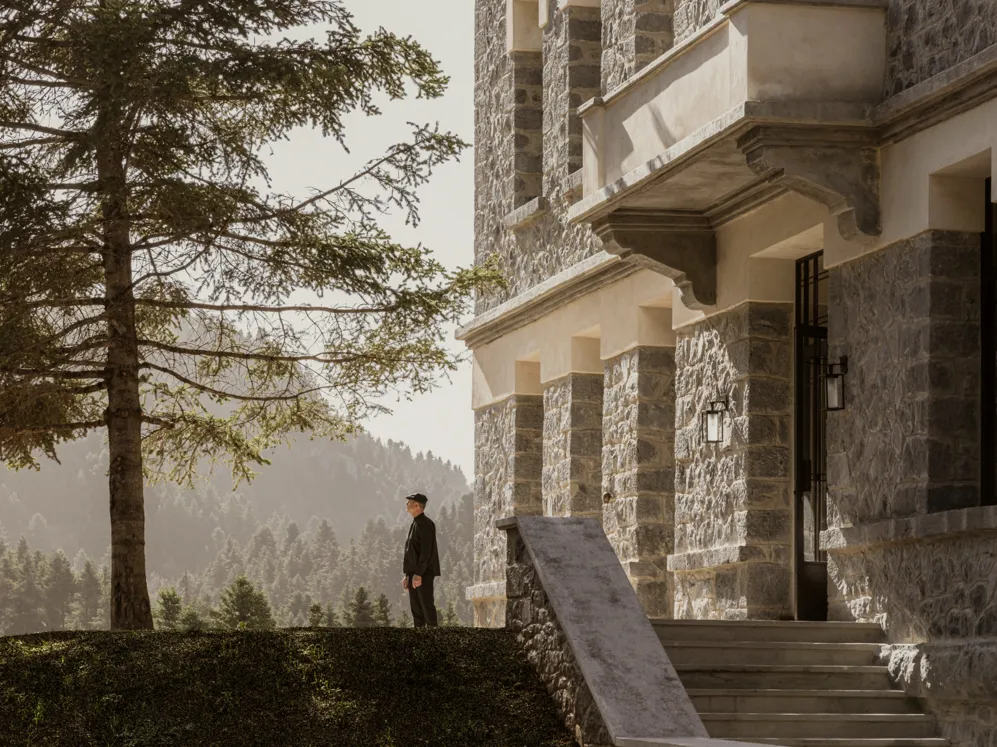
Words Vidula KotianDate 29 November 2023
Was it the long endless days of summer holidays spent with family returning to the same place? Or the first time you went somewhere that felt worlds away? At a time of seismic shifts in our ways of living, fast-forwarded by technology, travel still feels like a wholly human experience: Our need to connect with each other, to be at one with nature, to give into sensory pleasures—the list is endless.
Our first-ever trends report, Further Forecast 2024 explores how “a more human-centric approach to healing, community, and dining is slowing down our drive to be it all and see it all while conversely AI powered tools ease trip management and machine creativity lets us dive into unchartered realms of imagination." Our roundup of seven destinations for the coming year reflect this dichotomy. So escape with us, mentally until you physically can and wherever you choose, here’s hoping you meet fellow good travelers along the way and that the memories last long after.
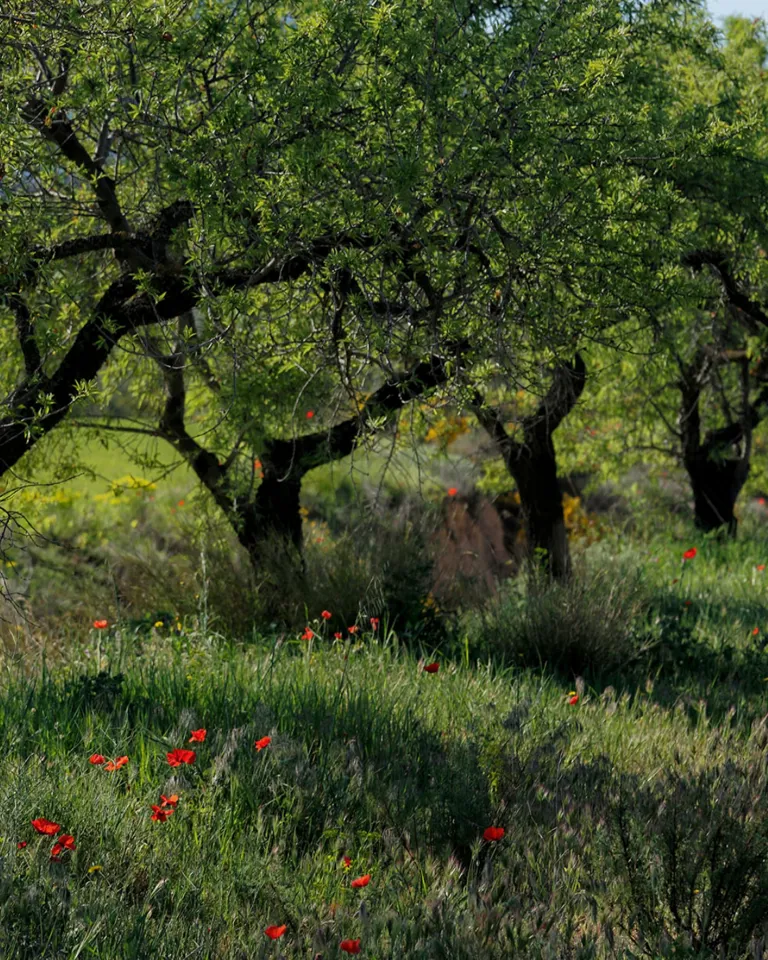
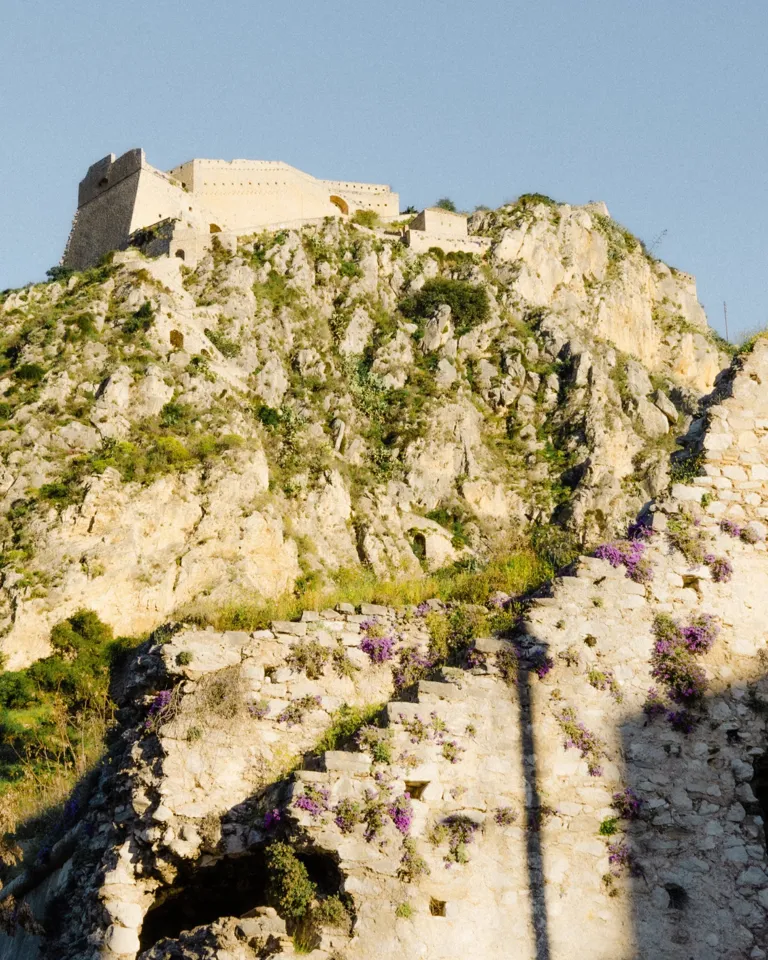
Perhaps more than any other destination in the Mediterranean, the South of France has beckoned artists, hedonists, sun-seekers, and writers. Apart from the scenic landscape—from the endless fragrant lavender fields to the glittering coastline of the Côte d'Azur—the region is peppered with world-class museums and studios of artists, such as van Gogh, Picasso, and Renoir.
Arles takes its artistic legacy—it was once the residence of Vincent van Gogh—seriously. There’s the Fondation Vincent van Gogh Arles, the lesser-known but nonetheless fascinating Musée Réattu, and the Frank Gehry-designed contemporary art center Luma Arles. As one of the world’s top art hotels, Le Collatéral offers a more intimate experience with the works of James Turrell and Reeve Schuhmacher, among others. The original behind this former medieval church, Philippe Schiepan says that the main point of the hotel “is the relationship between the guests and the art. So, ultimately, it’s about emotions. The art creates pure emotion and, thus, memories.”
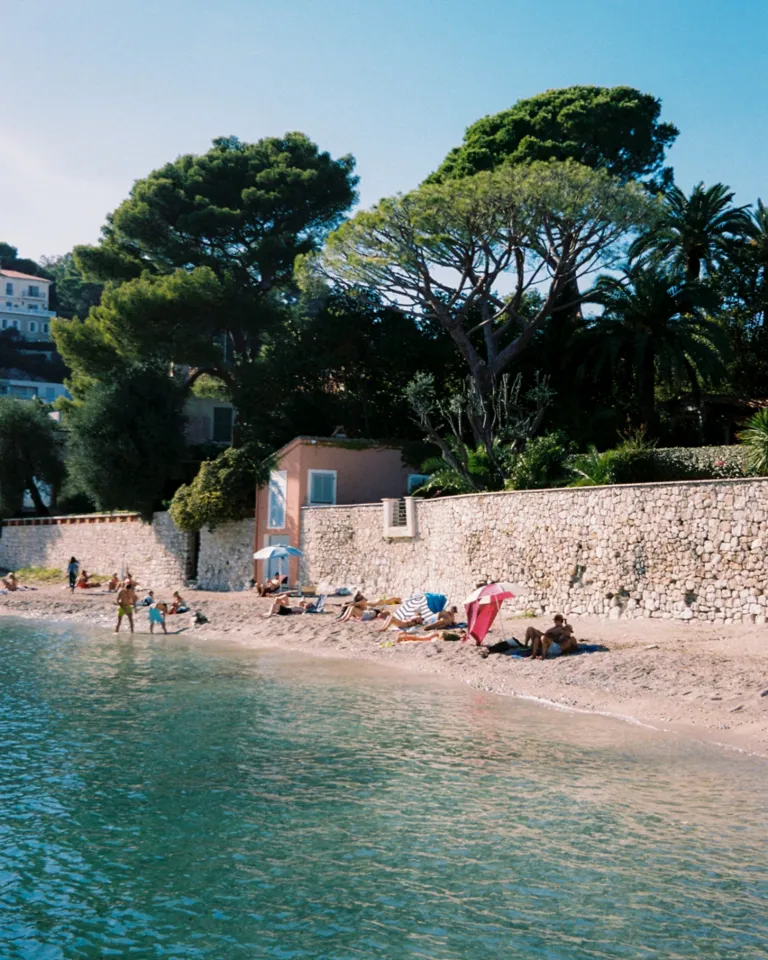
The beach below Eileen Gray's villa E1027 at Cap Martin
Listen
Just 30 minutes from Nice, the historic village of Saint Paul de Vence made its name in the 20th century as a haven for the famous, from the likes of Jean-Paul Sartre and Sophia Loren to Catherine Deneuve. And so it went that Picasso decorated the walls at the La Colombe d’Or hotel in exchange for lodgings, while Matisse designed every detail of the Chapelle du Rosaire, including stunning stained-glass windows, the lighting, flooring, and even the priest’s robes. Marc Chagall was a resident of the village and is buried in the local cemetery. All these painters’ artistic legacy lives on in nearby art museums, such as the Fondation CAB and the Fondation Maeght.
We haven’t even touched upon the incredible food or the architectural treasures, like Le Corbusier’s Cabanon de Cap-Martin, Eileen Gray’s villa E1027, the Hellenist Theodore Reinach’s Villa Kérylos, or Robert Mallet-Stevens’ Villa Noailles.
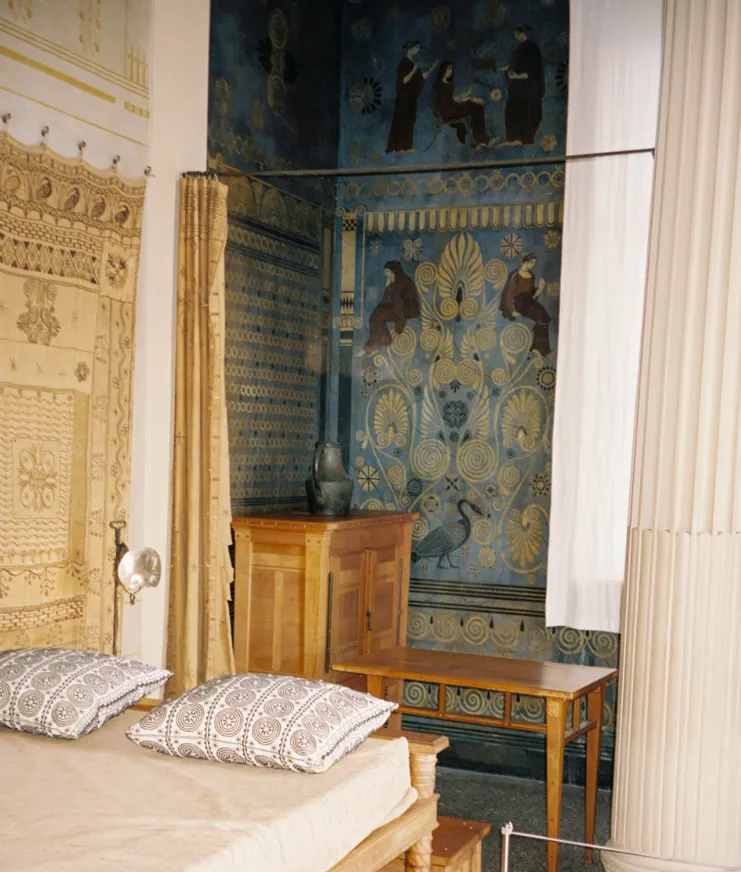
Villa Kérylos is an original reconstruction of an Ancient Greek stately home
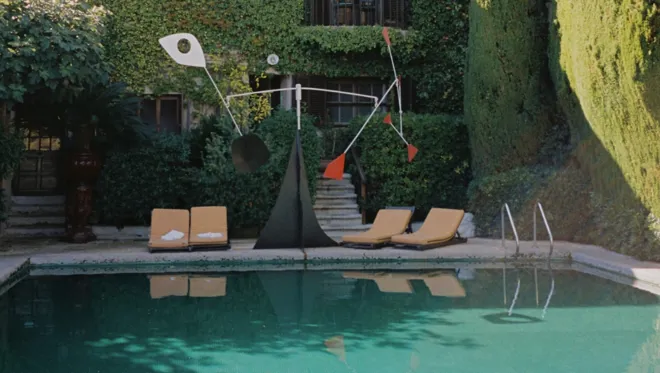
A mobile by American sculptor Alexander Calder
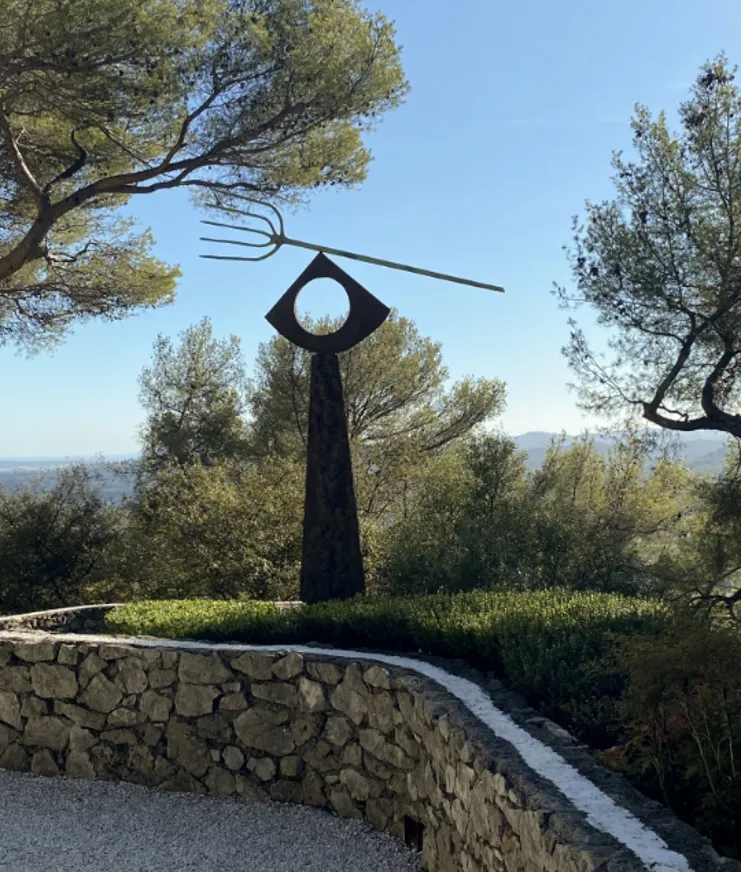
Labyrinth by Joan Miró at Fondation Maeght
Priorat is an incredible example of how an underdog in the wine world metamorphosed into one of Spain’s hottest wine producing regions. What was once considered the reason for the region’s low wine quality—poor soils and steep terraced slopes—is exactly what makes Priorat wines exceptional. The age of the vines (Carthusian monks are said to have planted vines here in the 12th century), a unique microclimate, and extremely low yields contribute to the intensity and strength of the region’s wines. Today there are some 2,000 hectares of vineyards and over 100 bodegas that produce high-quality wines. As the country’s only DOQ (denomination of quality origin) area outside of Rioja, Priorat is fast beginning to draw wine tourism.
Located about two hours south of Barcelona and less than an hour inland from Tarragona, Priorat is defined by beautiful landscapes, charming villages untouched by large-scale tourism, and the buen trato (warm and welcoming treatment) of the people. One such village, Torroja del Priorat, is home to Ora Hotel Priorat. Located in an 18th-century abbey, ORA is a gateway to the region, its exceptional wines, and the incredible gastronomy of the wine country. The hotel’s extensive cellar gives you a tour of the DOQ region’s most prestigious wines (a blend of Grenache and Carignan) from the comfort of your room or the hotel lounge, each well-paired with dishes that show off the area’s diverse culinary traditions.
With its superlative mountains, virgin forests, gorges, rivers, and wonderful coastline, it’s easy to see why the Peloponnese peninsula is steeped in legend—it was from here that the Helen of Troy eloped with Paris and Hercules fought the Nemean lion. In Arcadia, where Manna is located, nature tends to speak—the forests whisper through the winds, the lakes murmur, and the birds sing.
In winter, there’s skiing close by at one of Greece’s oldest ski resorts Mainalo. In spring and autumn, hikers tackle the 75-kilometer Menalon Trail, which unfurls through the Lousios River gorge, the western slopes of Menalon Mt., the valley of Mylaion River, and past charming traditional villages, such as Dimitsana, Stemnitsa, and Vytina with their own unique culinary traditions: artisan-crafted cheeses inside pitas (savory pies), hylopites (wide strips of pasta) served with meat and sauce, and chestnut, walnut, and carrot spoon desserts.
For oenophiles, the Peloponnese peninsula is home to more wineries and grape varieties than any other region in Greece. Nemea, a wine country like no other, is full of ancient archeological sites and lush, fertile land with rolling hills and scenic views. The region is known as the land of the Agiorgitiko grape, the parent varietal of Cabernet Sauvignon, which has been cultivated here for over 3,000 years. On the western Peloponnese coast, Dexamenes Seaside Hotel resides in an abandoned wine factory where guests sleep in concrete wine tanks converted into luxury suites and enjoy tastings in the former silos from the hotel’s own organic vineyard and other contemporary Greek vineyards.
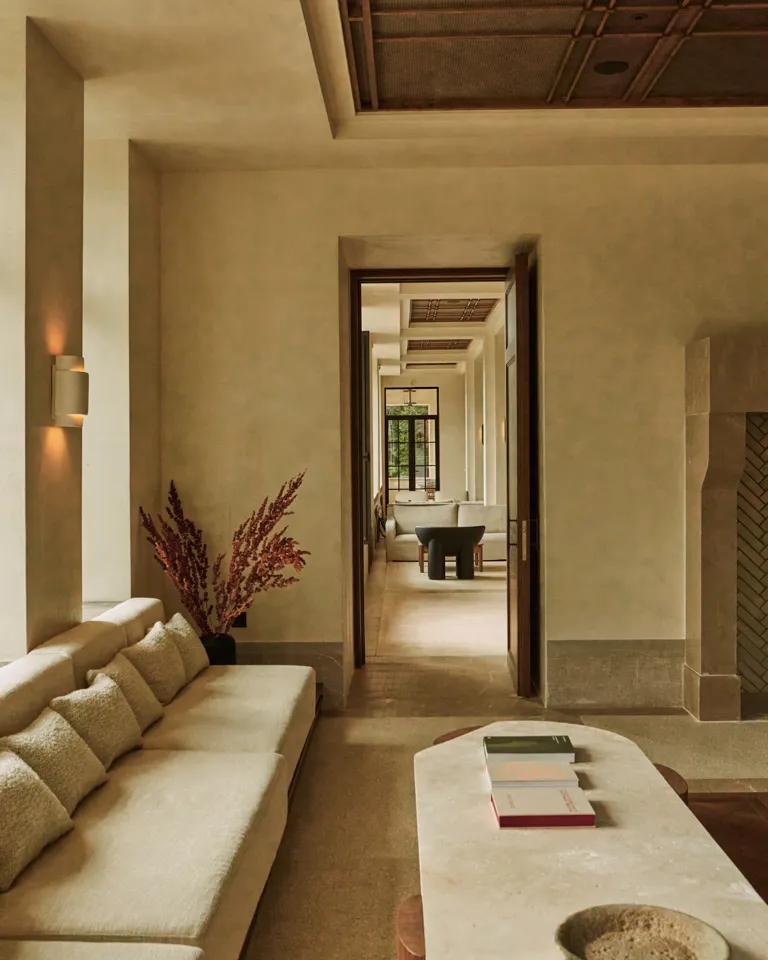
Manna interiors favor an earthy palette
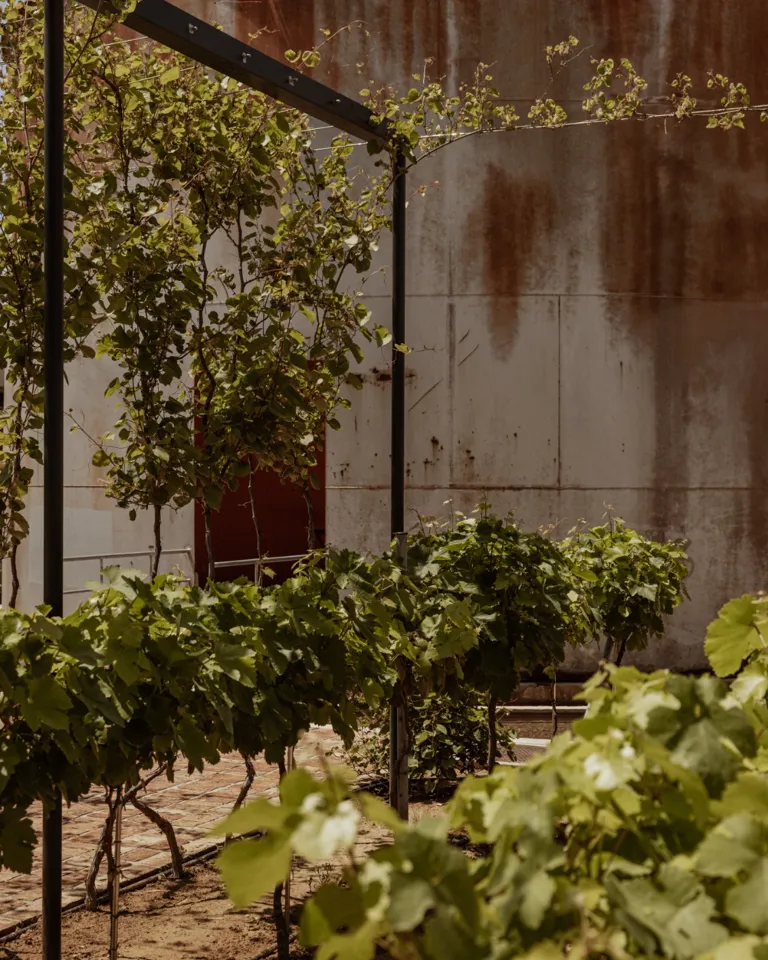
Organic vineyard at Dexamenes Seaside Hotel
Listen
While you’d be hard pressed to pick wrong in Mexico’s majestic Yucatán region—this is after all the land of pink salt lagoons, flamingos, haciendas, and cenotes—Bacalar is still an under the radar destination that is serving as a template for responsible tourism in the country. Located just north of the Belize border, in the state of Quintana Roo, Bacalar has yet to draw the attention of popular destinations, such as Cancún, Playa del Carmen, or Tulum. Thanks to the town’s laidback vibe and the extraordinary colors of its 26-mile-long lagoon, the interest in the area is rising.
A strong local community that’s fiercely protective of Bacalar’s magnificent natural wonders means that development in the area has been spearheaded by eco-conscious hoteliers, such as Mexico City-based Rodrigo Juárez, who are sourcing materials as locally as possible, employing staff from the region, and promoting activities that allow sustainability-minded travelers to connect with nature.
Juárez commissioned starchitect Frida Escobedo to design the striking Boca de Agua, which features a family of treehouses immersed in foliage and lifted on pillars to reduce the environmental impact on the soil—90% of the 82 acres of the resort’s land is untouched. Apart from the 22 rooms, the hotel features two restaurants (one with a stargazing platform), a lagoon deck, a cenote pool, and a spa cocooned by four chaká red trees. “As a project, we believe that the traditional model for tourism in emerging destinations must change—we are obsessed about it,” says Juárez. “We believe that regenerative hospitality does not have to be uncomfortable nor ugly, that regenerative hospitality is valued by travelers, and therefore, that projects like ours can become self-sustaining ventures.”
Listen
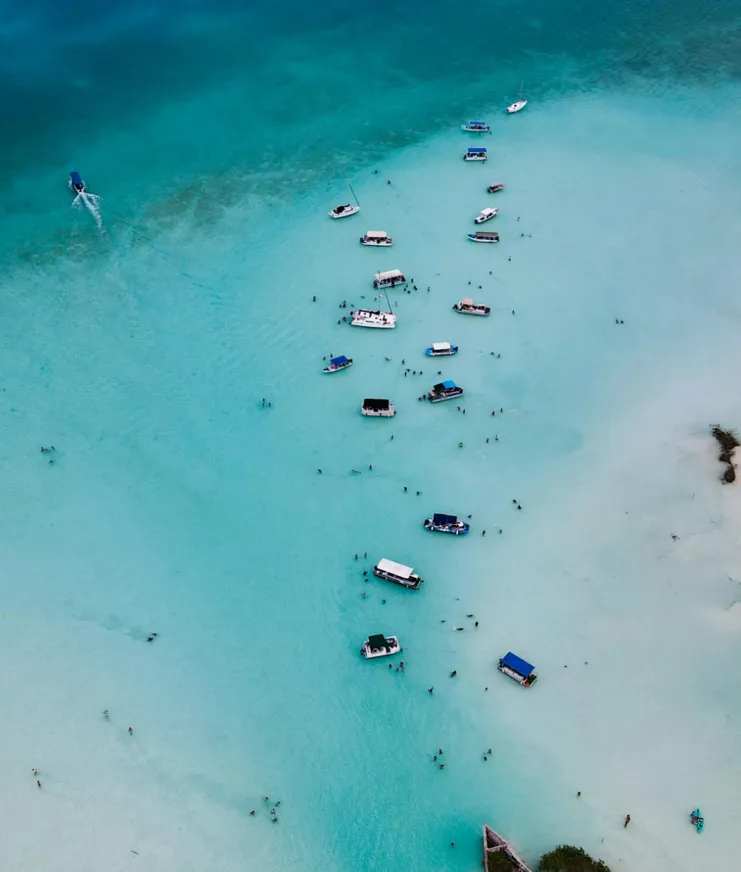
Bacalar's lagoon, also known as the "lagoon of seven colors"
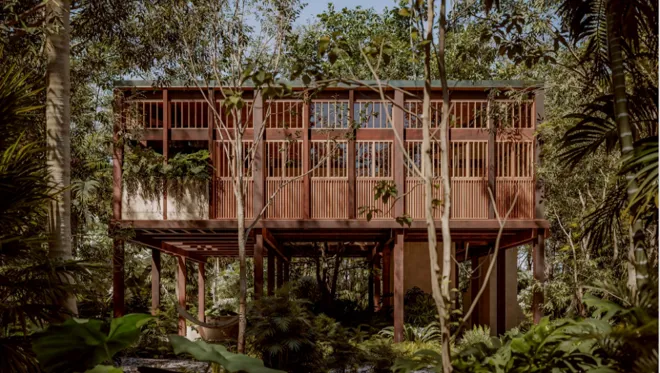
Boca de Agua's treehouse lifted on pillars to reduce the environmental impact
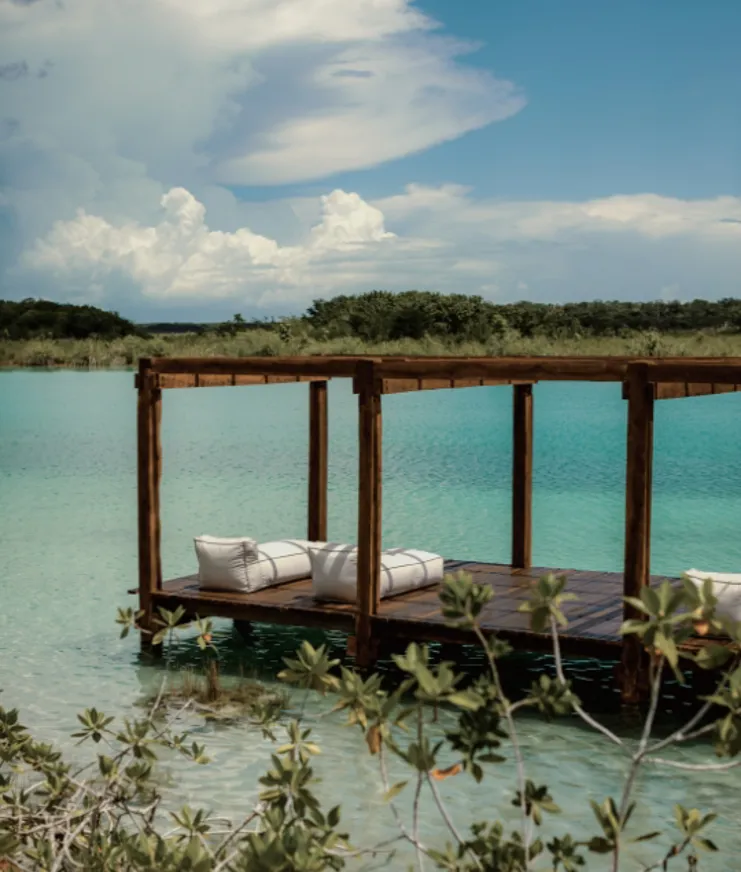
A deck to take in the extraordinary colors of the 26-mile-long lagoon
Singapore has long held the advertence of the rest of Asia. Here is, after all, a city-state that’s been consistently pushing the envelope in terms of inventive modern architecture that embraces the tropical island’s penchant for green. Its role as a gastronomic powerhouse is tied to a unique culinary scene that embraces both its multiethnic heritage and the new, inventive. (The island is a global hotspot for the alternative protein industry).
What makes the Lion City resilient and a contender for the city of the future is its constant striving towards innovation. “If you look at all the major challenges that the world faces—you talk about urban densities, aging populations, rising sea levels—you name it, we probably have it. And so that creates a very optimal location to test for solutions that might address some of these issues,” says Dawn Lim, executive director of Design Singapore Council, the national design agency. Inspired by the sustainable 15-minute city concept—where most daily necessities and services are located within a 15-minute walk or bike ride—the island nation has launched an ambitious project to become a 45-Minute City with 20-Minute Towns by 2040. A melting pot of artists, designers, and creatives with a story to tell, Singapore Design Week has already made its mark as one of the most important festivals on the Asian design calendar.
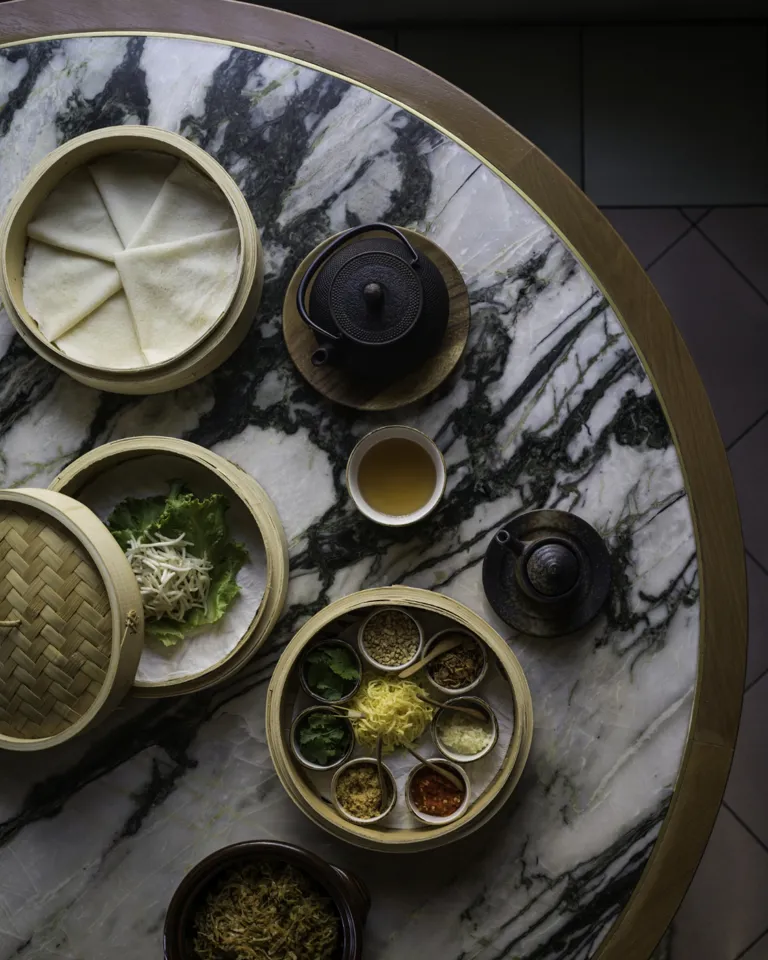
Singaporean cuisine embraces its rich heritage
Thanks to award-winning tastemakers like Wee Teng Wen, the original behind The Warehouse Hotel, the city can expect a new Creative Cluster, opening in the second quarter of 2024, that houses the best talents and creative entrepreneurs in dining, retail, arts, culture, entertainment, wellness, and enrichment. “46 Kim Yam Road, with its beautiful architectural bones, not only offers the opportunity to celebrate the amazing entrepreneurs here, but to tell a compelling Singapore story of creative progress,” says Wee of the project.
Then there’s our newest property, 21 Carpenter opening next month by the talented and unconventional local architects WOHA. The hotel is a masterpiece in reclaimed storied materials, emblems, and inscriptions from the original 1936 remittance house in which it is housed. Located where historic Chinatown meets the vibrant bustle of Clarke Quay—which is developing into a microcosm for imaginative eateries—the hotel will add to the vibrancy of the scene with its own neo-bistro & bar with a brand-new culinary concept by Michelin-starred chef Andrew Walsh.
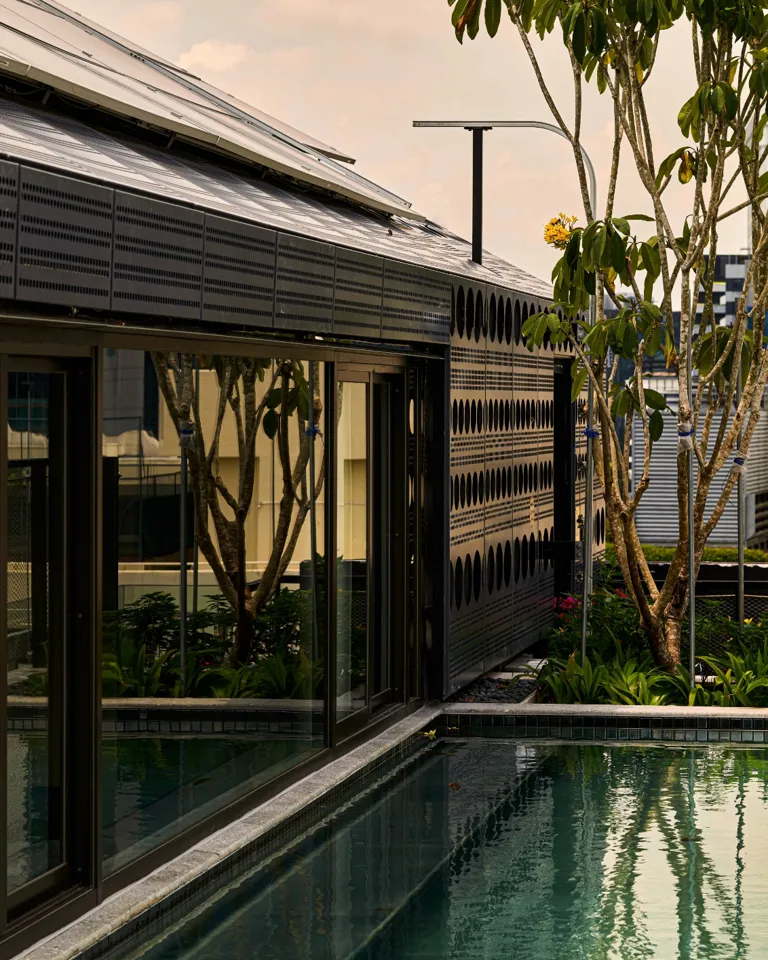
Infinity pool on the rooftop at 21 Carpenter
Taste Atlas put Oklahoma City on the gastronomic map by naming it, alongside places like Florence, São Paulo, and Tokyo, one of the 100 best cities to try local food. A far cry from the fried-chicken stereotypes of the Southwest, Oklahoma City boasts a dynamic, eclectic food scene rich with culture and character. There’s the Stock & Bond, a modern sauce and ingredient-driven steakhouse and Urban Agrarian, a food market that sources from local farmers.
Located in the First Americans Museum, Thirty Nine serves indigenous-inspired fare using traditional ingredients, such as bison, hominy, guajillo chilies, and jicama found in the 39 recognized tribes of Oklahoma. In the spring of 2024, James Beard award-winning chef Andrew Black will open his fourth culinary venture in the city, Perle Mesta, beside the Grey Sweater, Black Walnut, and Gilded Acorn. At Ma Der Lao Kitchen, which made it to both The New York Times and Bon Appetit’s 50 Best Restaurants lists, James Beard Foundation finalist chef Jeff Chanchaleune has come full circle by going back to his roots and offering his take on Laotian cuisine.
On the edges of the Paseo Arts district and Crown Heights, our newest member Bradford House is housed in a Victorian-style house awash in shades of pink, tropical greens, and animal prints. Sara Kate Little, one of the originals behind the boutique hotel and a OKC native, credits the meteoric rise of the culinary scene to “young chefs who have trained elsewhere and come back to put their own twist on the fine dining they experienced in bigger cities.” Bradford House’s own cozy nooks have become a living room for the locals to come for seasonal drinks or to grab pastries and coffee. The hotel restaurant is a testament to the city’s flare for innovative cuisine. Think sourdough with house-whipped molasses butter, mushroom hand pie with onion chutney and truffle gouda cheese sauce, and a salad with green gooseberry vinaigrette, pistachio dukkah, and lime spice.
Sara Kate Little, Bradford House
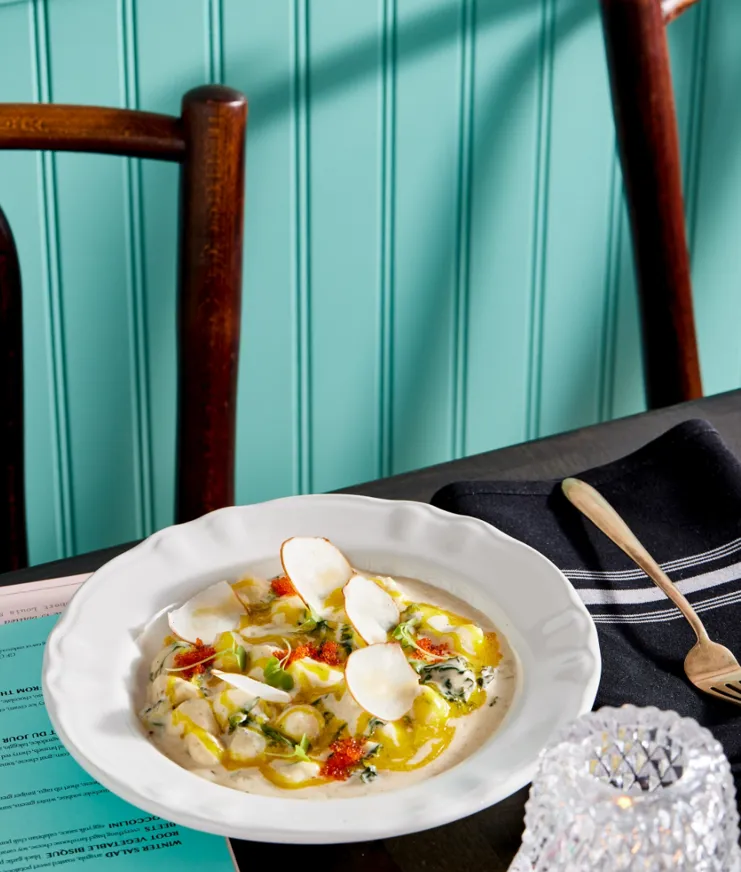
Seasonal, local dishes by chef Caleb Stangroom at Bradford House
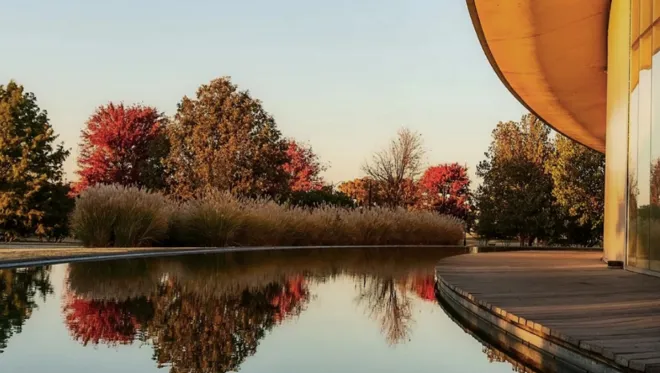
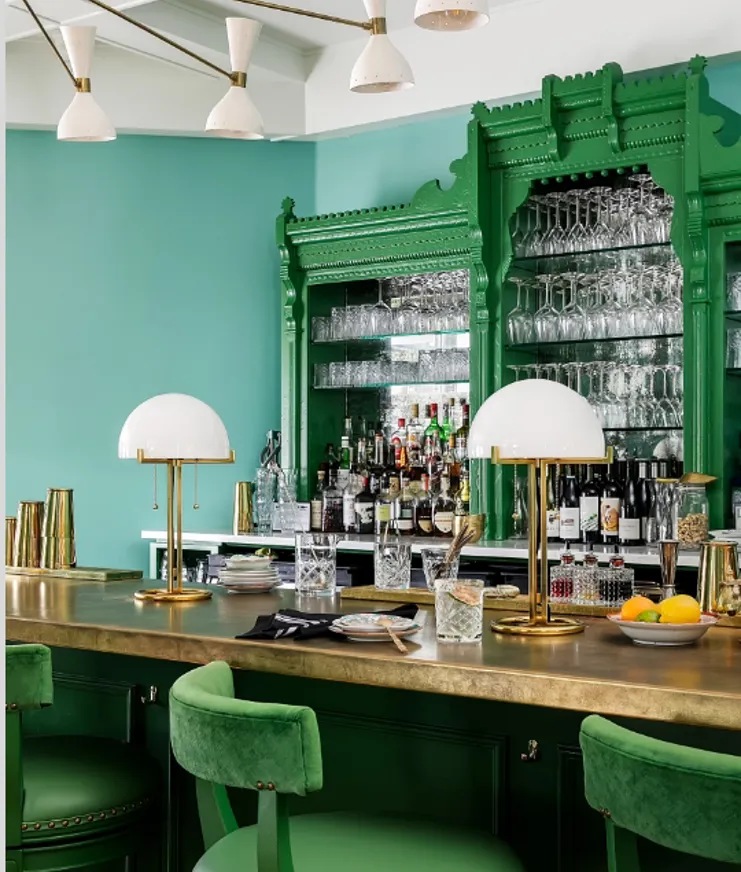
The cozy bar at Bradford House
At the foot of the Col du Grand St. Bernard, Martigny is one of those fairytale Swiss towns with gorges that rank among the top 10 in Europe, thermal water springs, stunning mountain trails, and terraced vineyards in the southwest. While nature is a big draw here, the town attracts art lovers year-round. The nucleus of its rich cultural heritage is the Pierre Gianadda Foundation, which is home to paintings and sculptures by well-known artists, a Gallo-Roman museum, a special Leonardo da Vinci exhibition, and a sculpture garden with masterpieces by Henry Moore, Joan Miro, Auguste Rodin, Pierre-Auguste Renoir, and Alicia Penalba.
Martigny is also home to a number of Gallo-Roman ruins, including thermal baths and, most impressively, an amphitheater that once seated up to 5,000 people for gladiator events. The soon-to-open Hotel Borsari will let guests and locals experience the extraordinary underground baths constructed in former wine tanks dating to the 19th-century. In a place already known for its gastronomy thanks to its Mediterranean flair, the hotel’s restaurant “180” aims to celebrate the region by sourcing all produce from a 180-kilometer radius. The photographer Rob Ball has been commissioned to capture the essence and heritage of Martigny through a series of images and artworks.